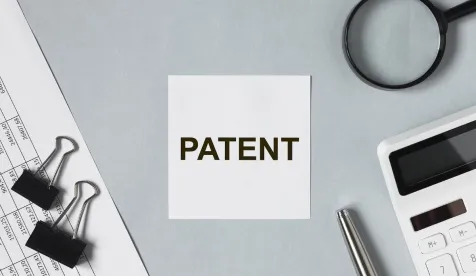Judge Albright of the U.S. District Court for the Western District of Texas granted, in part, Meta Platforms, Inc.’s (“Meta”) 12(b)(6) motion to dismiss (“Motion”) in Grecia Estate Holdings LLC v. Meta Platforms, Inc. (6:21-CV-00677). The Motion alleged Grecia Estate Holdings, LLC (“Grecia”) (1) failed to state a plausible infringement claim under Rule 12(b)(6); or in the alternative (2) should have been collaterally estopped from asserting such a claim. Ultimately, the court found Grecia was not collaterally estopped from asserting its infringement claim because Meta’s validity arguments about indefiniteness and identicalness, at this stage of litigation were not ripe for review. However, the court did find that Grecia failed to state a plausible claim because Grecia did not articulate how certain Meta products allegedly infringed upon Grecia’s U.S. Patent No. 8,402,555 (“the ’555 patent”). The court found certain Grecia infringement allegations to contradict arguments Grecia made before the Patent Trial and Appeal Board (PTAB) during a previous inter partes review (IPR). This led to a dismissal on the pleadings.
Plaintiff, Grecia, filed an infringement action against Meta, stating that Meta had infringed the ’555 patent, which sought to improve upon traditional “digital rights management” (DRM) schemes regarding digital media operations between machines. Grecia claimed that its patented invention was an improvement over prior art because it provided “unlimited inter-operability of digital media between unlimited machines with management of end-user access to the digital media.” This improvement also “employ[ed] electronic integrated circuits, as part of a web service membership, to manage access rights across a plurality of devices” instead of restricting digital media inter-operability to a limited number of machines.
At issue was Meta’s Messenger app and Facebook Pay (collectively, “Accused Product”). Grecia claimed the Accused Product infringed because it associated a QR code with a user’s account and monitored “access to the Facebook Pay account holder’s digital money.” In response, Meta sought to dismiss the complaint for failure to state a plausible claim and/or under collateral estoppel because the ’555 patent issues were arguably identical to previously litigated patent issues in other proceedings.
While the court found that Grecia was not collaterally estopped, due to various presumptions the court would have to make, the court did find in favor of Meta’s contention that Grecia, in its initial complaint, failed to plead infringement of the ’555 patent in sufficient detail. Claim 15 of the ’555 patent required that the “membership verification token provided by a first user, correspond to the encrypted digital media.” This was also a limitation of claim 16. In its complaint, Grecia claimed that a “Facebook Pay user’s PayPal account or Debit and Credit Card number” was the “membership verification token.”
However, Meta argued that this position contradicted arguments made during a previous IPR, where Grecia had taken the position that credit card information or any payment account information could not constitute a “membership verification token…corresponding to the encrypted digital media.” According to Meta, in the IPR, Grecia had essentially disclaimed “any correspondence between credit card information and the ‘encrypted digital media’ of the ’555 patent,” and therefore could not use this as a basis for its infringement claims.
Taking judicial notice of Grecia’s statements during the IPR proceeding regarding the invention’s scope, the court agreed with Meta and determined that Grecia’s complaint failed to articulate a plausible theory for how the Accused Product infringed claims 15-16 of the ’555 patent. The court’s decision appears to be consistent with the Federal Circuit’s holding in Aylus Networks, Inc. v. Apple Inc., 856 F.3d 1353 (Fed. Cir. 2017), which noted that statements made by a patent owner during an IPR, before or after an institution decision, can be relied on to support a finding of prosecution disclaimer during claim construction. The court granted Meta’s Motion, and all Grecia’s claims against Meta were dismissed with prejudice.
Ivory Djahouri, a summer associate in Foley’s Chicago office, authored this article. Foley partner Mike Houston provided editing guidance.




 />i
/>i

